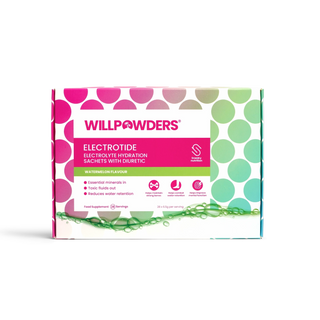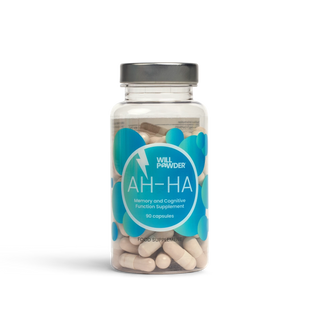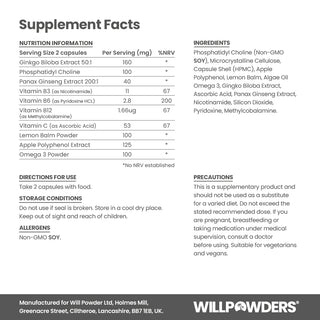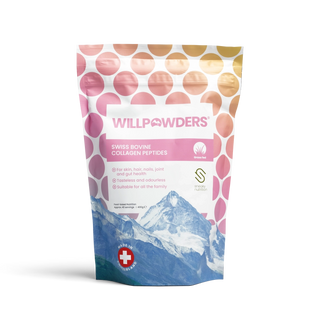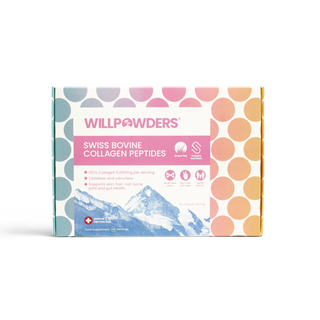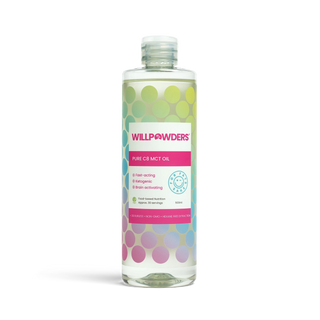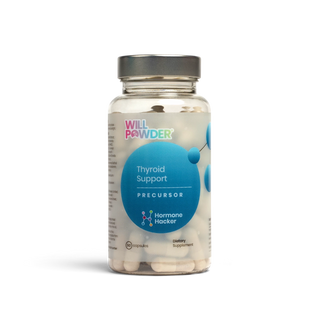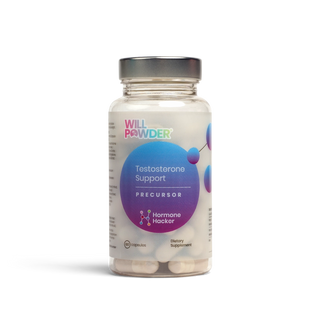

Hack Your Hormones
Why Do I Feel So Low?
A Review of Davinia Taylor's, Hack Your Hormones
It’s okay to not be okay. In fact, it’s perfectly normal.
Life aint no walk in the park, and it can often throw us curve balls which completely derail us and make us feel utterly hopeless. Or, we can be completely paralysed by sadness for no reason with no understanding of where the sadness is coming from. The likelihood is, if it’s the latter, it’s your hormones. I don’t know about you, but I am acutely aware of when I’m hormonally sad, and even though I know it’s just my body’s chemicals playing havoc, I still can’t seem to snap myself out of the funk. This lack of control only serves to heighten my misery and culminates in rage, or the feeling that I’m a complete lunatic.
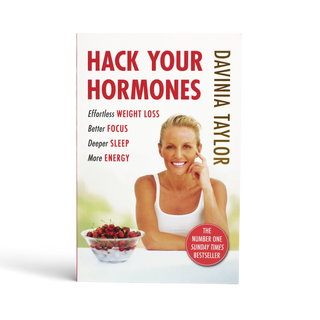

Hack Yourself Happy!
All I can say is thank God for Davinia Taylor’s research into how you can hack yourself happy!
In DT’s Why Do I Feel So Low chapter of Hack Your Hormones, she highlights the following mood inducing hormones:
- Serotonin - the happy hormone that regulates your mood.
- Oxytocin - the love hormone that makes us feel all gushy and gooey.
- Dopamine - our desire and pleasure hormone.
- Noradrenaline and Norepinephrine - works alongside Dopamine to give us energy and alertness.
Finding Natural Hacks
Now, this is definitely worth a mention and putting on your emotional radar: Anhedonia is a condition that makes you unable to feel pleasure. DT suffered from this after being prescribed SSRIS and it was one of the reasons that she channelled all her energy into learning everything she could about hacking her hormones to support her happiness. With the right amount of know-how, you can overcome what can be an extremely debilitating condition. Regardless of whether your symptoms are as desperate as the ones this condition manifests, there are plenty of natural hacks to support your mood.
DT explains how your hormones can make you feel utterly miserable, which is important for you to understand; this will ensure that you know how to hack the right ones. DT highlights how you can almost measure your own hormone regulation when you tune into a bit of you.
The vast majority of Serotonin is made in the gut; therefore, you can literally eat yourself happy - I mean, it’s a dream come true, really! However, if you’re on the ultra processed food train and getting your fixes from vegetable oils, the likelihood is, your gut is actually making you miserable.
Dopamine is the key hormone for motivation, so it is really important that you understand how to trigger your Dopamine release in a healthy and sustainable way. We all have different Dopamine baseline levels - some people are luckier than others - the ‘other’s’ often have to work harder for their pleasure fix. If you’re a stay at home and potter, whilst you enjoy the company of you, yourself and a bit more you, the likelihood is, your Dopamine baseline level isn’t as high as Mr and Mrs Social Butterfly next door.
Noradrenaline is the adrenaline in the brain and it supports our alertness and energy levels. DT explains that if you feel tired ALL the time, even when you have slept well, this is an indicator that you may be low.
Oxytocin is triggered by other people. When you surround yourself with people or animals that make you happy, your spark is ignited and your love hormone is released.
Cortisol is not the Devil hormone and it’s actually the one that gets you out of bed in the morning, but if it is out of whack and spiking at the wrong times, like at night, it can really disrupt your mood. If you lead a stressful life, the likelihood is, your Cortisol is spiking when you least need it to. When this is happening, it’s important to chase after that Oxytocin boost, as the love hormone naturally blunts spiking cortisol.
DT summarises what can affect and impact all of these hormones that need to work in harmony so that you can find your zen and happiness:
Inflammation- Who knew that chronic inflammation was the root cause of depression? Cytokines are small proteins that regulate our inflammatory response, but too many of these proteins can inhibit our mood regulating hormones: Serotonin, Dopamine and Noradrenaline.
DT explores how we can manage inflammation and how we hack our way to mood regulation. Avoiding inflammation spiking foods like vegetable oils, emulsifiers and refined sugars will support you and your body’s regulation of Cytokines. Basically, you need to steer clear of all things processed. If it's in a packet, read the ingredient list!
Stress is going to inflame your body and antagonise your neuromodulators, sending cortisol flying to every corner of your being. DT recognises how impossible it is to eliminate every stressful trigger in your life, so try to identify what presses your buttons and think about how you tweak, refine or completely avoid those high pressurised situations.
Poor sleep is the bedrock for your overall health and well-being, and research shows that higher levels of Cytokines are found in people who sleep poorly.
A lack of natural light can knock your cells’ natural circadian rhythm out of whack and disrupt your body clock, which is ultimately going to impact your sleep and energy levels. Not only this, light plus cholesterol in the skin enables Serotonin to cross the blood-brain barrier from the gut, so if you're low on these beauties, your mood is going to plummet.
Now, it’s not all doom and gloom! DT highlights brilliant, realistic and natural ways that you can help yourself and boost your mood:
- Look after your gut with nutrient dense fats and fermented foods to increase your production of Serotonin.
- Reduce inflammation with herbs and spices such as: ginger; turmeric; cinnamon; parley; garlic; cayenne pepper and black pepper.
- Eat fatty acids to balance your brain. Food like mackerel, salmon, herring, oysters, sardines, caviar, flax and chia seeds and walnuts are all amazing sources of omega 3.
- Boost your gut bacteria with foods like: kombucha; kimchi; kefir; sauerkraut and live yoghurt.
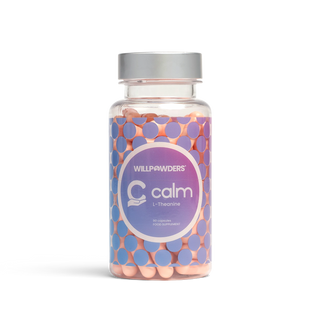

DT also provides a list of supplements that can successfully support your mood:
L Theanine contains amino acids which help to blunt stress responses right down. WillPowder’s Calm supplement is the perfect addition to your well-being store cupboard.
Brain Powder is an amazing source of Mucuna Pruriens which is a source of L-Dopa, a precursor to Dopamine.
Creatine - boosts drive, motivation and has antidepressant properties.
Rhodiola Rosea - a herbal adaptogen that is used to tackle low mood. Improves stress-related depression and positively influences levels of Serotonin and Dopamine in the brain.
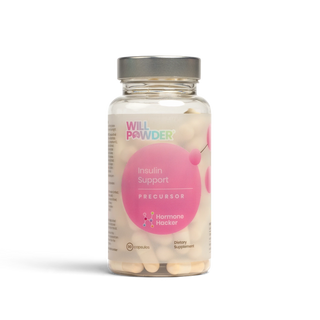

More Mood Boosters
MCT Oil and MCT Powder improve mood and cognitive function
ElectroTide calms anxiety and gives you a well deserved boost.
Insulin Support Precursor - anti-stress and anti-inflammatory properties and also relieves fatigue.
EPA - reduces inflammation and it is an amazing source of Omega -3.
There are so many ways that we can lift our spirits, but when it’s chemical it can be so much harder; therefore, DT urges you to take control and grab happiness by the proverbial balls. By tuning in, making little tweaks, feeding your body with the fuel it needs and throwing back some natural supplements, you will soon be on your way to finding the joy and contentment that you deserve and crave.
Disclaimer
Our blogs are written with love in the hope that they go some way in helping you feel like the rockstar you are, and whilst we do our due diligence, research like maniacs and fact check our stuff, we know everyone’s journey is different. They are intended to educate and empower you, not usurp medical advice. We would never advise you to stop, adjust, or modify any prescription medication without the direct supervision of your healthcare practitioner, but don’t be afraid to talk to your doctor about your new found knowledge, brought to you by the marvels of nature because they don't know everything! Blogs are always informed by Davinia but often written by a member of the team. Not all blogs reflect Davinia's experiences and sometimes provide alternative perspectives

